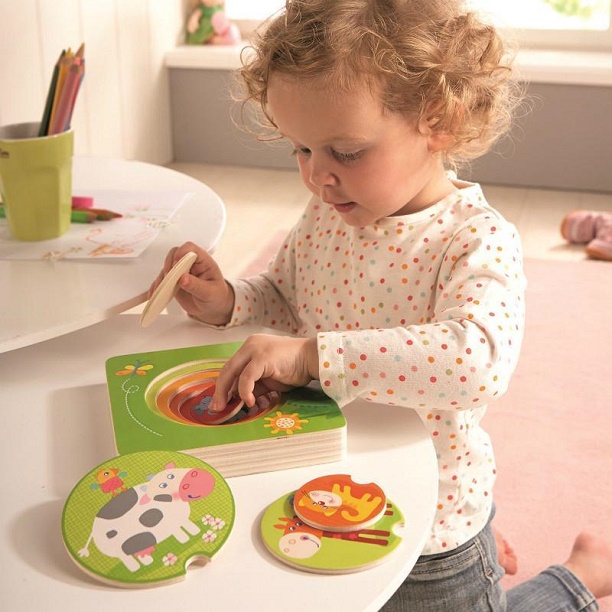If you have small children then you probably have noticed how much they enjoy playing with wooden puzzles. While these toys are primarily seen as a fun toy, they actually offer some incredibly educational benefits for young children.
Available in a wide range of shapes and sizes, wooden puzzles for children are known to encourage imagination and creativity. The colours and shapes of the pieces serve to stimulate brain cells and encourage prolonged interest when arranged the pieces to achieve the specific design. Other benefits provided by wooden puzzles for children include.
Enhanced Problem Solving Skills
Puzzles offer children the opportunity to practice the trial and error method of finding a solution. Figuring out where the pieces fit and where they don’t teach children early math skills that they will need to be successful later one. Furthermore, puzzles are a ‘game’ that cannot be completed by cheating. Pieces can’t be put together if they don’t belong, so there is no smart way to finish the game.

Better Hand-Eye Coordination
Moving, rotating, flipping and manipulating the pieces helps children to practice their fine motor skills. Practicing these fine motor skill while picking a piece and searching for its proper spot and fitting it into the puzzle gives children the opportunity to strengthen the connection between their hands and eyes.
Strengthen Cognitive Skills
Puzzles are great for helping children, especially preschoolers, develop critical cognitive skills. In their school years, children are expected to follow certain instructions to accomplish tasks and projects. Playing with puzzles during young ages teach children to complete the task given to them one step at a time.
Many consider wooden puzzles for children one of the most versatile and well-rounded learning tools one can buy for their children. If you are looking for a toy for your child this Christmas that offers a host of valuable educational benefits that support child development, you should consider getting a wooden puzzle.
When selecting a puzzle for your child, make sure you choose on that is age appropriate. While it shouldn’t be too easy, a puzzle that is too challenging could frustrate your kid, causing him/her to give up. Also look for colourful, bright and fun shapes and pictures to help engage your children and hold his/her attention for a longer period of time. And if possible, choose a puzzle that appeals to your kid’s interests. Is your little one obsessed with trains, airplanes, robots or princesses, butterflies, etc? Find puzzles that incorporate those things!
